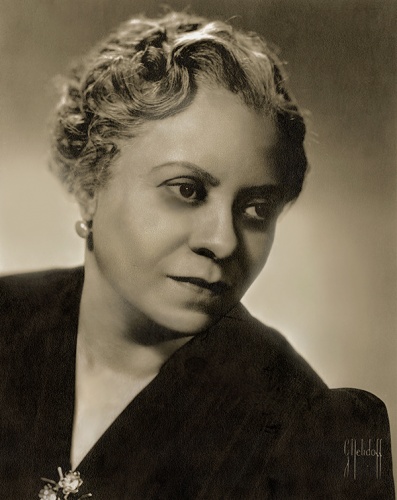G.Schirmer Acquires Worldwide Publishing Rights to Florence Price's Catalog
15th November 2018

NEW YORK, NY November 15th, 2018 – G. Schirmer, Inc., part of The Music Sales Group, announces it has acquired the worldwide publishing rights to classical composer Florence Price's catalog.
Florence Price was one of the first African-American women to be nationally recognized as a composer, and was the first African-American woman to have her work performed by a major American orchestra; the Chicago Symphony Orchestra gave the world premiere of her Symphony No. 1 in E Minor on June 15, 1933, shortly after it won the then-coveted Rodman Wanamaker Prize.
While her compositional training was based in European classical tradition, she is known to have expanded the American musical vernacular by elegantly combining the language of her classical training with modern references inspired by African-American spirituals and blues, incorporating European classical and American folk styles.
"We at G. Schirmer/Music Sales are thrilled and honored to provide a publishing home for the brilliant, expressive music of Florence Price," says G. Schirmer's Promotion Director Rachel Sokolow. "Our stewardship of her performance materials will provide worldwide accessibility to her catalog. As more orchestras and presenters recognize the need to address diversity in classical music programming, we hope that Price's oeuvre can be a valuable resource."
"We are so proud that our grandmother has been re-discovered at a time when the high quality, value, and beauty of her work is not negated due to her gender or color," Price's granddaughter Vicki Hammond expresses, also on behalf of Price's grandson Timothy Taylor. "We are very grateful to the folks at G. Schirmer for bringing her contributions to the performance community and the public worldwide."
Read the New York Times exclusive featuring Robert Thompson, President of G. Schirmer.
Like many composers, Price drew inspiration from her personal connections with other prominent artists of the time, from poet Langston Hughes to singer Marian Anderson among others. She set the influential Langston Hughes poem cycle Songs to a Dark Virgin in 1941, and her undated song Sympathy (set to a Paul Laurence Dunbar poem) is said to have inspired Maya Angelou. Singer Marian Anderson regularly performed Price's haunting arrangement of My Soul's Been Anchored in the Lord, including to close out her historic concert at the Lincoln Memorial in 1939.
Although she did achieve historic success, Price struggled with having her work considered for performance.
"To begin with I have two handicaps — those of sex and race," she wrote in her first of many letters to the famed Boston Symphony Orchestra conductor Serge Koussevitsky. "Unfortunately the work of a woman composer is preconceived by many to be light, froth, lacking in depth, logic and virility. Add to that the incident of race — I have Colored blood in my veins — and you will understand some of the difficulties that confront one in such a position." A later excerpt stated, "I would like to be judged on merit alone." Unable to achieve greater exposure as the American cultural landscape evolved, Price's work began to fade from public regard after her passing in 1953.
Fifty-six years later, some of the composer's works and papers were discovered in an abandoned house near St. Anne, Illinois in 2009, sparking renewed interest in her work. The collection contained dozens of scores in manuscript, thought to be lost, including her Violin Concertos Nos. 1 and 2, recently recorded by violinist Er-Gene Kahng and the Janacek Philharmonic, and released via Albany Records.
These findings and Ms. Kahng's recent recording have led a current revival of Price's work through performances, recordings, and an outpouring of publicity, including a 2018 New Yorker article titled "The Rediscovery of Florence Price" and a New York Times article titled "Welcoming a Black Female Composer Into the Canon. Finally."
"Not only did Price fail to enter the canon; a large quantity of her music came perilously close to obliteration," The New Yorker's Alex Ross also acknowledged earlier this year. "That run-down house in St. Anne is a potent symbol of how a country can forget its cultural history."
This year alone will see performances from the Baltimore Symphony Orchestra, the Arkansas Philharmonic Orchestra, the Orchestra of St. Luke's, and the Fort Smith Symphony — who world-premiered Price's Symphony No. 4 in D Minor this past May. Upcoming performances of her work will be led by the New Jersey Symphony Orchestra, the Phoenix Symphony, and the Minnesota Orchestra, among others.
Photo © University of Arkansas Libraries Special Collections
